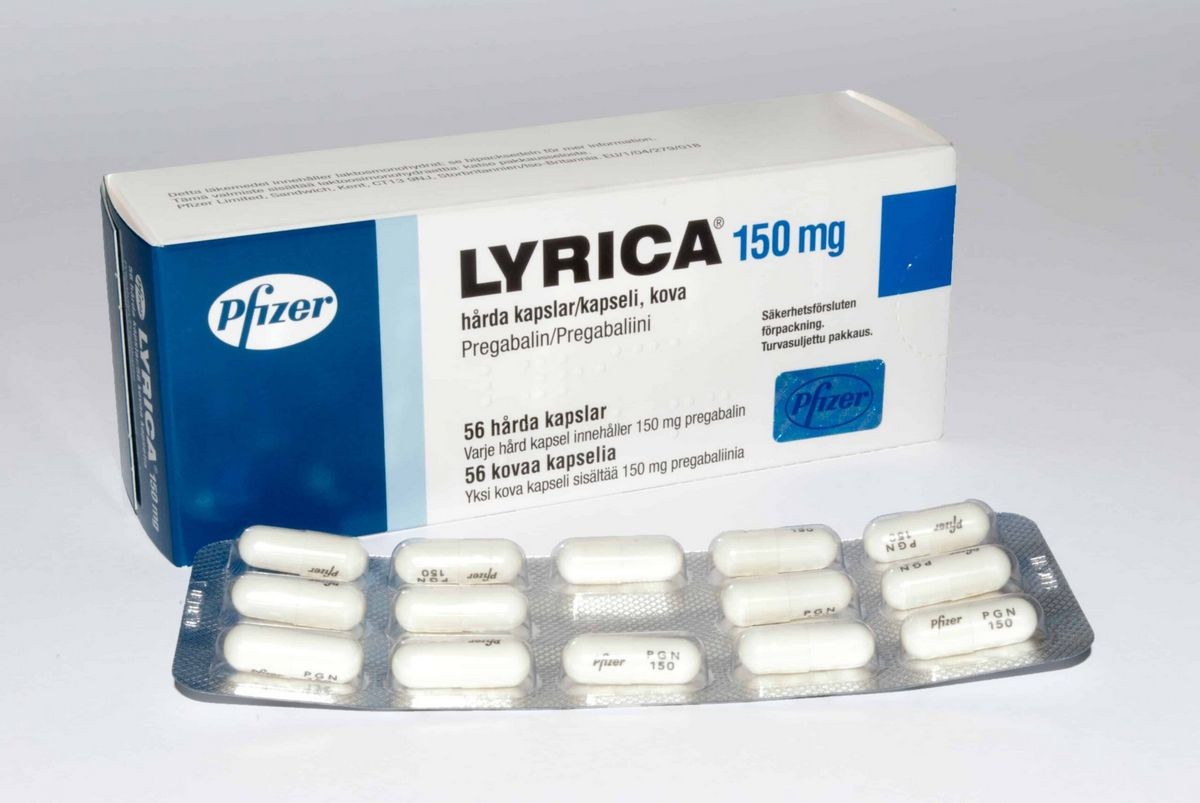
Contents
Lyrica vs. Gabapentin
Gabapentin is approved for treating seizure disorders and nerve damage from herpes zoster (shingles, postherpetic neuralgia).
There are many non-FDA-approved uses for gabapentin. These include:
- Alcohol withdrawal
- Cocaine withdrawal
- Hiccups
- Restless leg syndrome
- Hyperhidrosis
- Headaches
- Diabetic neuropathy
- Hot flashes
- Fibromyalgia
Side effects of Lyrica vs. gabapentin?
Lyrica side effects
WARNING
Antiepileptic medications have been associated with increased risk of suicidal thinking and behavior. Anyone considering the use of antiepileptic drugs must balance this risk of suicide with the clinical need. Patients who are started on therapy should be closely observed for clinical worsening, suicidal thoughts, or unusual changes in behavior.
The most common side effects of Lyrica include:
- dizziness
- drowsiness
- dry mouth (xerostomia)
- edema (accumulation of fluid)
- blurred vision
- double vision (diplopia)
- weight gain
- fatigue (tiredness)
- abnormal gait (ataxia)
- tremor
- difficulty concentrating
Other side effects include:
- constipation
- increased appetite
- nausea
- flatulence
- amnesia
- disorientation
- myoclonus (sudden, involuntary jerking of a muscle or muscle groups)
- heart failure
- low blood pressure
- vomiting
- reduced blood platelet counts
- increased blood creatinine kinase levels
Increased creatinine kinase can be a sign of muscle injury, and in clinical trials three patients experienced rhabdomyolysis (severe muscle injury). Therefore, patients should report unexplained muscle pain, tenderness, or weakness to their doctors, especially if associated with fever and malaise (reduced well-being). Lyrica has rarely been associated with angioedema (swelling of the face, tongue, lips, gums, throat, and larynx).
Gabapentin side effects
The most common side effects of gabapentin are:
- Dizziness
- Sleepiness
- Ataxia
- Fatigue
- Drowsiness
- Fluid retention (edema)
- Hostility
- Nausea
- Vomiting
- Difficulty speaking
- Jerky movements
- Unusual eye movements
- Double vision
- Tremors
- Memory loss
- Unsteadiness
Other adverse effects and serious side effects associated with gabapentin include:
- Weight gain
- Joint pain
- Motion sickness
- Blurred vision
- Viral infection
Antiepileptic medications have been associated with an increased risk of suicidal thinking and behavior. Anyone considering the use of antiepileptic drugs must balance this risk of suicide with the clinical need. Patients who are started on therapy should be closely observed for clinical worsening, suicidal thoughts, or unusual changes in behavior.
Is gabapentin addictive? Is it a narcotic?
Gabapentin is not an opioid narcotic and is not classified as a controlled substance by the Drug Enforcement Agency (DEA). However, this medication does share signs and symptoms associated with drug misuse, addiction, and withdrawal symptoms of opioids like:
- Sweating
- Anxiety
- Muscle pain
- Insomnia
- Goosebumps (philoerections)
- There have been reports of patients abusing this drug.
Dosage of Lyrica vs. gabapentin?
Lyrica dosage instructions
- Lyrica may be taken with or without food.
- Treating diabetic peripheral neuropathy: The initial dose is 50 mg three times a day (150 mg/day). The dose may be increased to a maximum of 100 mg three times daily (300 mg/day) after one week.
- Treating postherpetic neuralgia: The recommended dose is 75-150 mg twice daily or 50-100 mg three times daily. Dosing should begin at 75 mg two times a day or 50 mg three times a day (150 mg/day). The dose may be increased to 100 mg three times daily (300 mg/day) after one week. If pain relief is inadequate after 2-4 weeks of treatment at 300 mg/day, the dose may be increased to 300 mg twice daily or 200 mg three times daily. Doses greater than 300 mg cause more side effects.
- Treating neuropathic pain associated with spinal cord injury: The dose is 150-600 mg daily. Begin with 75 mg two times a day and increase to 150 mg two times daily after one week if response is inadequate. May increase to 300 mg twice daily if response is inadequate after 2 to 3 weeks.
- Treating seizures: The recommended dose is 150-600 mg/day divided into 2 or 3 doses, starting at 150 mg daily and increasing based on response and tolerability. The maximum dose is 600 mg/day.
- Treating fibromyalgia: Fibromyalgia is treated with 300-450 mg/day in 2 or 3 divided doses.
Gabapentin dosage instructions
- Gabapentin may be taken with or without food.
- Treating postherpetic neuralgia: The recommended dose is 1800 mg daily in 3 divided doses (Neurontin) or 1800 mg once daily (Gralise). Gralise is not interchangeable with other gabapentin products.
- Treating seizures: Seizures are treated with 900-1800 mg/daily in 3 divided doses (Neurontin). Withdrawal of treatment should occur slowly over a week.
Drugs that interact with Lyrica vs. gabapentin?
Lyrica drug interactions
- Alcohol and drugs that cause sedation may increase the sedative effects of pregabalin.
- Pioglitazone (Actos) and rosiglitazone (Avandia) cause weight gain, fluid retention, and possibly heart failure. Therefore, combining pregabalin with these drugs may increase the occurrence of weight gain and fluid retention.
Gabapentin drug interactions
- Antacids reduce the concentration of gabapentin in blood. Therefore, gabapentin should be administered 2 hours or more after taking antacids.
- Morphine significantly increases blood concentrations of gabapentin and may increase central nervous system-related adverse events associated with gabapentin.
Are Lyrica or gabapentin safe to take if I am pregnant or breastfeeding?
Lyrica safety
- There are no adequate studies of Lyrica in pregnant women.
- It is not known whether Lyrica is excreted in breast milk.
Gabapentin safety
- Doctors do not know the safety of gabapentin during pregnancy.
- Gabapentin is secreted in human breast milk; therefore, if you are pregnant you should only use this medication if the benefits outweigh the unknown risk to the fetus.
Summary
Lyrica (pregablin) and gabapentin (Neurotin) are drugs used to prevent seizures and treat nerve pain associated with various conditions such as shingles and fibromyalgia. Both medications share side effects, including tremors, blurred or double vision, memory or concentration problems, dizziness, and drowsiness. Lyrica has additional side effects such as constipation, weight gain, dry mouth, breast enlargement, and edema (swelling). Gabapentin has unique side effects such as viral infections, fever, speech problems, and unusual eye and jerky movements. Lyrica’s generic name is pregabalin, while gabapentin is available under brand names Neurontin, Gralise, Horizant, Fanatrex, and FusePag.


